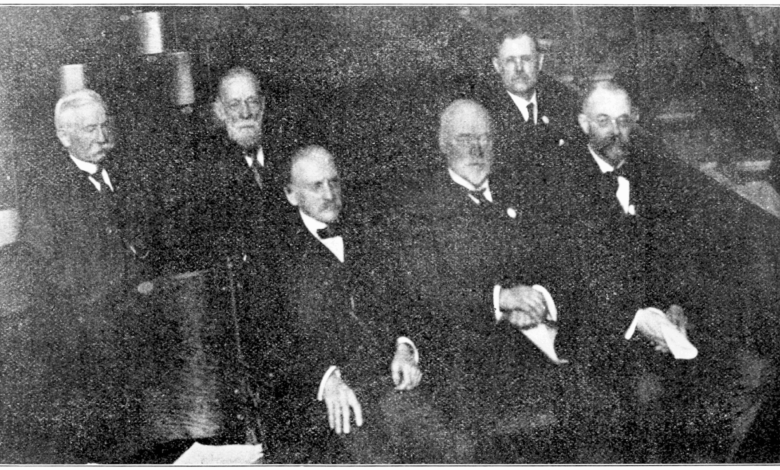American Scientists With Best Net Worth

Science and technology have long been pathways to immense success and wealth. Throughout history, numerous American scientists have leveraged their brilliance and discoveries to build massive fortunes.
Today, some of the richest people in the world are tech tycoons and innovators who got their start in science. Their groundbreaking contributions have made our modern world possible while earning them billions.
Let’s take a look at some of the American scientists with the highest net worth and how they amassed their wealth.
Elon Musk – Net Worth $137 Billion
Elon Musk is one of the most famous names in science and technology today. The founder of Tesla Motors and SpaceX, Musk has completely disrupted the auto and aerospace industries. His vision for electric vehicles, renewable energy, and space exploration has made him the richest man in the world.
Musk’s initial fortune came from the sale of PayPal, the online payments company he co-founded.
But it was his risk-taking and innovative ideas in the fields of electric cars, batteries, solar power, and commercial space flight that propelled his net worth to over $100 billion.
Despite some financial struggles in Tesla’s early days, the company is now the world’s most valuable automaker.
SpaceX has pioneered reusable orbital rockets, bringing down the cost of space launches. Even with massive R&D costs, Musk’s relentless drive has created immensely valuable companies that have cemented his status as one of the greatest American scientists turned entrepreneurs.
Jeff Bezos – Net Worth $109 Billion
Jeff Bezos is synonymous with Amazon, the e-commerce giant he founded out of his Seattle garage in 1994. What began as an online bookstore has grown into one of the largest, most influential companies ever. This growth has minted Bezos as one of the world’s wealthiest people.
Before starting Amazon, Bezos worked in computer science and engineering. After graduating from Princeton University in 1986, he was employed by fitness equipment manufacturer Fitel to develop their computer systems.
In 1990, Bezos became the youngest senior vice president at Wall Street investment firm D.E. Shaw & Co., where his technical expertise helped develop online trading platforms.
When the internet boom took off in the ’90s, Bezos recognized its potential for retail. He left his lucrative job and started Amazon, quickly dominating the emerging e-commerce industry. Under Bezos’ leadership, Amazon leveraged technology to revolutionize shopping, web services, consumer electronics, streaming media and more. This relentless innovation has kept Amazon on the cutting edge, making it one of the most valuable public companies on earth.
Bill Gates – Net Worth $106 Billion
Bill Gates is renowned as the co-founder of Microsoft, which helped bring personal computers into mainstream use and made Gates one of the wealthiest people alive.
But before revolutionizing the world of computers, Gates demonstrated an early talent in the sciences.
As a student at the Lakeside School in Seattle, he wrote his first software program at age 13. This program was a tic-tac-toe game where users could play against the computer.
At Lakeside, Gates and fellow student Paul Allen honed their programming abilities on the school’s ASR-33 teletype terminal.
Gates then studied at Harvard University while developing code for the first microcomputers. In 1975, Gates and Allen co-founded Microsoft in Albuquerque, New Mexico to develop software for the emerging PC market.
Microsoft’s big break came in 1980 when IBM contracted them to create the operating system for IBM’s first personal computer.
Gates oversaw the software development and licensing deals that established Microsoft’s dominant operating systems and applications. While no longer Microsoft’s CEO, Gates still shapes technology and philanthropy through the Bill and Melinda Gates Foundation.
Larry Page – Net Worth $93 Billion
In the early days of the internet, Larry Page foresaw the world’s information at one’s fingertips. Along with Sergey Brin, Page co-founded Google in 1998 as a Stanford PhD student. Today, Page’s net worth stems from Google’s dominance as the planet’s most ubiquitous search engine and largest advertising platform.
Page served as Google’s CEO from 2011 to 2015. His interest in data mining and PageRank algorithms was instrumental in making Google the #1 search engine. Under his leadership, Google evolved far beyond search into a tech conglomerate offering email, software, hardware, AI, self-driving cars, health tech, and more.
Page stepped down due to illness but remains a board member and shareholder. While he is no longer Google’s CEO, he still helps shape the company’s visionary projects.
Page’s scientific mind and business acumen have enabled him to amass an immense $93 billion net worth.
Sergey Brin – Net Worth $89 Billion
Like his Google co-founder Larry Page, Sergey Brin’s training in computer science and mathematics contributed to his status among the richest scientists in America.
Originally from Russia, Brin immigrated with his family to the U.S. as a child. He went on to study mathematics and computer science at the University of Maryland and Stanford.
At Stanford in 1995, Larry Page and Sergey Brin began collaborating on a search engine called BackRub.
Seeing the potential to organize the World Wide Web’s growing data, Brin and Page founded Google in 1998.
Brin was instrumental in developing the PageRank algorithm that ranked search results based on incoming links and relevance. This breakthrough made Google the world’s most authoritative search portal.
Under Brin’s leadership as President, Google evolved from a simple search engine to a global technology leader in web software, online advertising, email, video sharing, smartphones, and more.
Brin stepped down as President in 2019 but remains a board member and major shareholder. His large ownership stake in Google/Alphabet gives Sergey Brin a current net worth of $89 billion.
Steve Ballmer – Net Worth $83 Billion
For many years, Steve Ballmer was the CEO and public face of Microsoft as it came to dominate the personal computing landscape.
Ballmer’s high-energy, competitive personality defined Microsoft in the 1980s and 90s as he helped Gates build it into a tech titan.
Ballmer began working with Bill Gates at Harvard University in 1973. He subsequently dropped out to become one of Microsoft’s first employees in 1980.
As Microsoft’s first business manager, Ballmer oversaw the company’s early partnerships and licensing deals.
He later rose to President, CEO, and board chairmanship as Microsoft launched Windows, Office, and Internet Explorer. Under Ballmer’s aggressive leadership, Microsoft fought antitrust litigation while remaining massively profitable from its software sales and licenses.
Ballmer retired as CEO in 2014 with a fortune derived from his Microsoft stock holdings. Despite Microsoft’s challenges in mobile technology, it remains a computing staple today thanks largely to Ballmer’s tenacious leadership during its formative years.
Michael Dell – Net Worth $45 Billion
Among the richest American tech billionaires is Michael Dell, founder of Dell Technologies. Dell began building computers as a teen before founding the PC company Dell at age 19 in 1984.
Dell pioneered the direct-to-consumer business model of custom-built PCs. This allowed Dell to outcompete retail computer brands by offering more powerful yet affordable systems directly to buyers. Michael ell became the #1 PC seller worldwide in the 90s and 2000s.
After taking Dell private in 2013, Michael Dell has repositioned the venerable company into a leader in end-to-end technology infrastructure. This includes PCs along with servers, networking, AI, cloud computing, and cybersecurity solutions for enterprises.
By constantly adapting and acquiring new technologies, Michael Dell grew a dorm-room startup into a Fortune 500 giant. His wealth stems from his large ownership stake in the still-thriving company that bears his name.
Drew Weissman – Net Worth $7 million
Drew Weissman is an American immunologist known for his pioneering research on mRNA vaccines.
Along with his colleague Katalin Karikó, Weissman discovered how to modify mRNA to make it less inflammatory and more stable, which was a breakthrough that enabled the development of highly effective mRNA vaccines.
In 2020, the mRNA technology Weissman helped develop was used by BioNTech and Moderna to create their COVID-19 vaccines in record time.
For his groundbreaking work, Drew Weissman and Karikó have been hailed as heroes of the COVID pandemic and have received numerous prestigious awards and honors, including election to the National Academy of Sciences.
Weissman continues to conduct research at the University of Pennsylvania Perelman School of Medicine.
Gordon Moore – Net Worth $6.9 Billion
In computing history, few had as much impact as Intel co-founder Gordon Moore. He coined Moore’s Law, which predicts the exponential growth in computing power over time.
Moore began his career researching semiconductor materials and miniaturization at Fairchild Semiconductor.
In 1968, Moore and Robert Noyce left Fairchild to found Intel. Moore made critical contributions to Intel’s pioneering microprocessors powering the PC revolution.
The consistent doubling of transistor density (later termed Moore’s Law) became a guiding tenet of chip manufacturing. Intel’s technological innovations under Moore’s leadership enabled exponential gains in computing performance that reshaped society.
Although no longer Intel’s CEO, Moore’s wealth stems from his Intel stock and his foundational role in creating the groundbreaking technologies the company continues producing today.
Is Jeff Bezos A Scientist?
While not a scientist by training, Jeff Bezos’ background was in computer science and quantitative fields. He worked in programming jobs before founding Amazon. Bezos’ technical expertise was key in building Amazon’s software systems and online retail platform from scratch.
Who Founded Intel?
Gordon Moore and Robert Noyce co-founded Intel in 1968 after leaving Fairchild Semiconductor. Moore made critical contributions to Intel’s early microprocessors that powered the PC revolution. His wealth stems from his Intel stock holdings.
Conclusion
America has long been a hotbed of scientific talent, creativity, and entrepreneurship. The individuals profiled here leveraged their technical brilliance to launch hugely lucrative tech ventures. In doing so, they’ve earned some of the largest fortunes in modern history.
Their stories illustrate how innovations in science and technology can profoundly impact the world while massively enriching their creators.
Decades-long dominance of fields like software, semiconductors, online retail, and more have allowed these entrepreneurs to accrue billions in personal wealth.
While profits were not their sole motivation, their net worth symbolizes the value they’ve created for society. Their inventions have revolutionized commerce, communication, transportation, artificial intelligence, and beyond. Ongoing innovation will likely mint new American scientific billionaires in the future.





